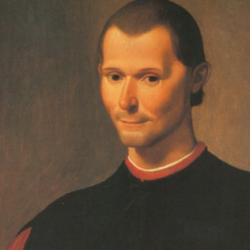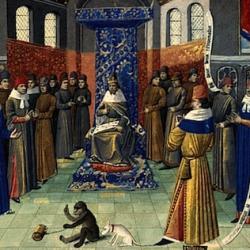Domenico Losurdo’s “counter-history” of Liberalism is a long riff on a central paradox: Many of the founding fathers of modern liberal thought were indifferent to, or even advocates of, slavery. John Calhoun is a prime example: “This eminent statesman, vice president of the United States in the mid-nineteenth century, burst into an impassioned ode to individual liberty, which, appealing to Locke, he vigorously defended against any abuse of power and any unwarranted interference by the state. . . . Along with ‘absolute governments’ and the ‘concentration of power,’ he unstintingly criticized and condemned fanaticism and the spirit of ‘crusade,’ to which he opposed ‘compromise’ as the guiding principle of genuine ‘constitutional governments.’ With equal eloquence Calhoun defended minority rights. . . . unduly extensive power was unacceptable in any event, even if limited in duration and tempered by the promise or prospect of periodic reversal of roles in the relationship between governors and governed.”
Yet, “Calhoun declared slavery to be ‘a positive good’ that civilization could not possible renounce.” Abolitionists were among the fanatics he condemned, and “blacks were not among the minorities defended with such vigour and legal erudition.” If black slaves were freed, it could only lead to “the extirpation of one or the other race’” (1-2).
The paradox didn’t go unnoticed. Scottish Enlightener John Millar observed, “It affords a curious spectacle to observe, that the same people who talk in a high strain of political liberty, and who consider the privilege of imposing their own taxes as one of the unalienable rights of mankind, should make no scruple of reducing their fellow-creatures into circumstances by which they are not only deprived of property, but almost of every species of right. Fortune perhaps never produced a situation more calculated to ridicule a liberal hypothesis, or to show how little the conduct of men is at the bottom directed by any philosophical principles” (quoted, 11). Samuel Johnson put it pithily: “How is it that we hear the loudest yelps for liberty from the drivers of negroes?” (quoted, 10)
Adam Smith was willing to contemplate despotism to rid a nation of slavery: “Slavery could be more easily abolished under a ‘despotic government’ than a ‘free government,’ with its representative bodies exclusively reserved in practice for white property-owners. In such circumstances, the condition of the black slaves was desperate: ‘every law is made by their masters, who will never pass anything prejudicial to themselves. ‘ Hence ‘the freedom of the free was the cause of the great oppression of the slaves. . . . And as they are the most numerous part of mankind, no human person will wish for liberty in a country where this institution is established’” (6).
The paradox: Calhoun is a liberal, yet advocates slavery. Smith tolerates tyranny to free slaves, yet is a liberal.
Losurdo argues that slavery isn’t a leftover of a pre-liberal age. Slavery reached its zenith in the age of liberalism. In 1700, there were 330,000 slaves; by 1800, 3 million, and that number had doubled by 1850: “In the mid-eighteenth century, it was Great Britain that possessed the largest number of slaves (878,000). The fact is unexpected. Although its empire was far more extensive, Spain came well behind. Second position was held by Portugal, which possessed 700,000 slaves and was in fact a kind of semi-colony of Great Britain: much of the gold extracted by Brazilian slaves ended up in London” (35).
As he probes the paradox, Losurdo finds that it becomes less paradoxical. With increasing wealth and leisure, England and the American colonies developed “the proud self-consciousness of a class that became ever more intolerant of the abuses of power, the intrusions, the interference and the constraints of political power or religious authority. Shaking off these constraints, the planter and slave-owner developed a liberal spirit and a liberal mentality” (38). That is, liberalism meant limiting the state’s ability to interfere with private property, and slaves were private property.
Liberalism resisted not only state interference, but also the “intrusions” of religious authorities: “First with the Glorious Revolution and then later, more completely, with the American Revolution, the assertion of self-government by civil society hegemonized by slaveholders involved the definitive liquidation of traditional forms of ‘interference’ by political and religious authority.” On the religious side, “Christian baptism and profession of faith were henceforth irrelevant” with respect to the slave’s status as slave, “marriage between slaves was no longer a sacrament, and even funerals lost their solemnity”; politically, “in Virginia at the end of the seventeenth century, one could proceed ‘without the solemnities of jury’ to the execution of a slave guilty of a capital crime” (39).
The very process that formed civil society as a barrier to state power protected the rights of slave owners to do what they pleased with their property. Liberal indifference to or endorsement of slavery is inherent in liberalism’s defense of property rights (so long as slaves were thought of as property).











